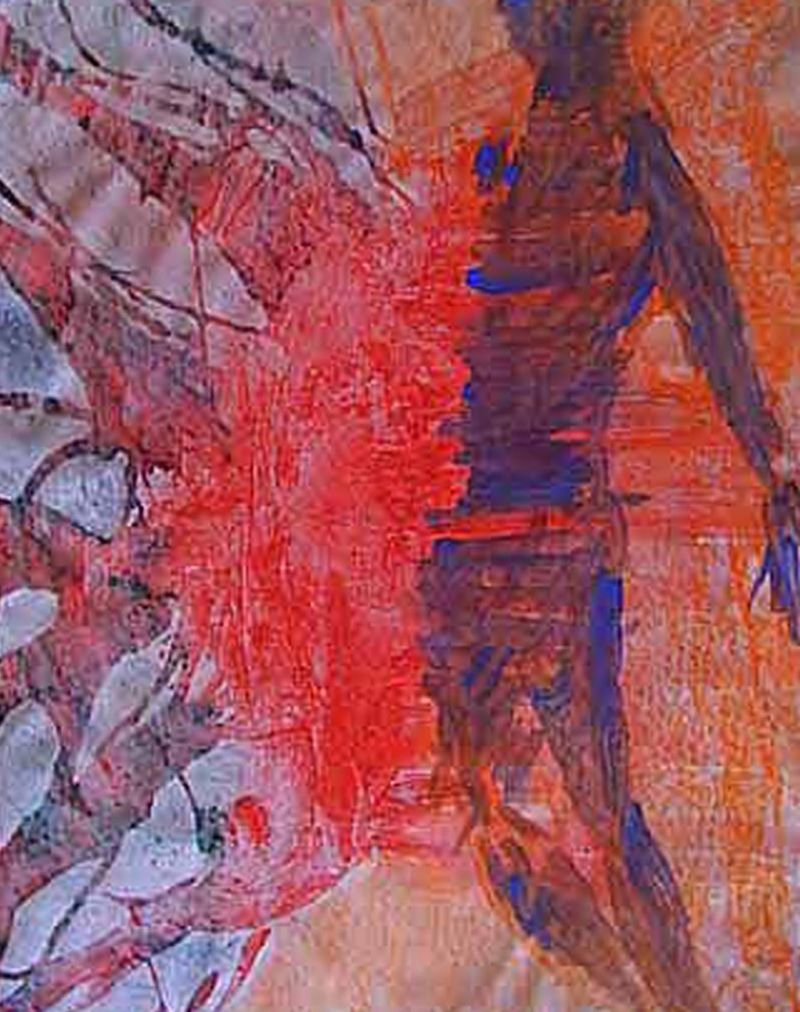Through the looking glass: art therapy and the transplant experience
Having a transplant is like climbing through a mirror into a world that sees beyond the reality we know as our own, beyond the self we normally identify with as “me.” Just like our own reflection, everything in the post organ-transplant experience seems reversed: illness and health, life and death, self and other. Pondering what this world on the other side of a mirror is like, is a metaphoric exploration of our own mystery.
Daily we grapple with the inherent paradox of Self and “Other”; in relationships, dreams, and most importantly, within ourselves. We wonder where we wander in other people’s dreams at night; what roles we play in other people’s narrative. Who is the “other” within, the Shadow figure we can only know through projection (such as images in art therapy). Through the simple act of putting marks on paper you could, like Alice, step through the mirror of your own otherness and see reflections of the mystery that is you.
Encountering and engaging the “other” (within) plunges us into the possible polarization of conflict and harmony. We may be facing a great disturbance the magnitude of which cannot be predicted. A “disturber” has entered our midst (literally our viscera in the transplant experience). The “disturber” however carries a message, a new way of being. It carries information from one life force to another, leaping across the divide of self and other and introduces a different way of knowing and functioning.
This “other” carries a different story-line, a blood-line that now enters our blood stream, the confluence of which creates a third way of being in our body and in-the-world. this phenomenon is something like a sudden medically induced inheritance, the transplanted dna now working on a new project of life and healing.
The metaphor of the transplant experience holds for all of us a way of conceptualizing the false sense of separation many experience on a day-to-day basis. The literal implantation of “other” in the transplant experience, particularly other as an agent of saving one’s life, breaks down barriers that previous to such an experience is somewhat unfathomable. And yet such a miracle does not come for free.
The struggle, may I say battle for separateness is as innate as the instinct for union. The trial begins with the introduction of the potent anti-rejection drugs so that our body will not kill off the transplanted organ. The effect of these “ both physically and psychologically, is like someone is stepping on a hose that happens to be your life force. No wonder soma and psyche are confused!
Susanna’s recently published book “Mourning the Dream Amor Fati. An Illustrated Mythopoetic Inquiry” goes into some detail about the transplant experience from a Depth Psychological perspective.
